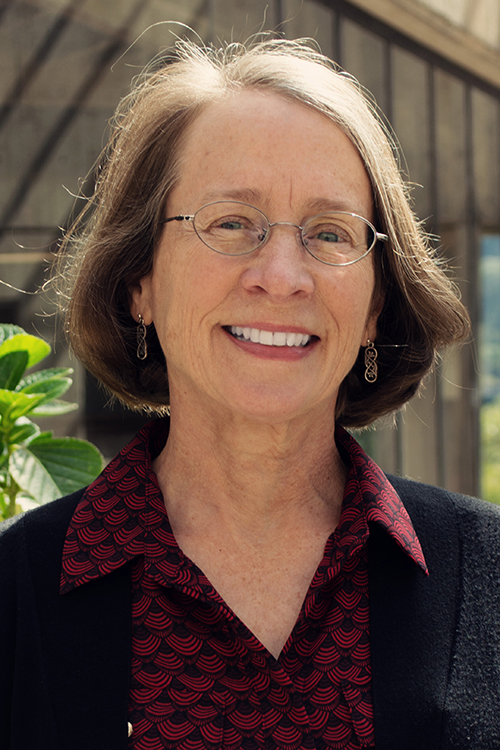Celebrating Dr. Susan Heckbert’s Career, Legacy, and Contributions to Public Health
After more than three decades of advancing public health and medicine, mentoring generations of students, and shaping the field of epidemiology, Professor Susan Heckbert, MD, PhD, is retiring from the University of Washington Department of Epidemiology (UW Epidemiology) on August 1, 2025. A cherished educator, rigorous researcher, and generous donor, Dr. Heckbert leaves behind a legacy defined by impact, collaboration, and care.

Dr. Heckbert began her career in medicine as a general internist, earning her MD at Case Western Reserve University. After completing her residency, she was selected to serve as Chief Medical Resident at UW’s Harborview Medical Center in 1984. At the time, the Chief of Medicine was Dr. King K. Holmes,
a pioneer in sexually transmitted disease research and leader in the UW’s Schools of Public Health and Medicine.
“For physicians like me, who were interested in doing clinical research, Dr. Holmes strongly advocated epidemiologic training. So, I entered the UW’s Master of Public Health program.” explained Heckbert. “I found that I liked epidemiology so much that I also completed my PhD in epidemiology at the UW!”
She has since championed epidemiology as an essential complement to clinical practice. “When I was caring for patients, it was critical to understand the distribution of a condition in the population to make an appropriate diagnosis and treatment plan, as well as focus on the individual patient and what’s going to be best for them,” she said. “When you’re a practicing physician, you need to have that appreciation for both.” The training she completed through UW Epidemiology also helped her explore the clinical questions she went on to study throughout her career, primarily in pharmacoepidemiology, cardiovascular epidemiology, and, more recently, neuroepidemiology.
Over her 35-year tenure as a faculty member at the University of Washington, Dr. Heckbert held appointments in both the UW Department of Epidemiology and the School of Pharmacy. She co-developed and co-taught a graduate course in pharmacoepidemiology for nearly three decades, amongst other courses, and mentored scores of PhD students, residents, fellows, postdocs, and junior faculty both at the UW and across the United States. Her research spanned clinical and population health, with significant contributions to understanding cardiovascular disease, atrial fibrillation, medication safety and effectiveness, and Alzheimer’s-related conditions.
Dr. Heckbert played pivotal roles in several major NIH-funded observational studies—including the Cardiovascular Health Study, the Multi-Ethnic Study of Atherosclerosis (MESA), and the Women’s Health Initiative. Notably, her work revealed important racial disparities in atrial fibrillation detection and advanced the use of MRI to detect early vascular and degenerative changes in the brain.
“When we started some of these large cohort studies, there really wasn’t much research available about the populations we were looking at,” she described. “Before the Cardiovascular Health Study, for instance, there hadn’t been much research on people over 65, and similarly, the Women’s Health Initiative focused on the cardiovascular health of women, which really hadn’t received much attention previously. So, we’ve learned all kinds of things from those studies that inform our understanding of cardiovascular health.”
Even with the multitudes of clinical research contributions, when asked what she’s most proud of, Heckbert shared: “Seeing my trainees complete their degrees and go on to become leaders in medicine and public health—that’s the most rewarding part of my career.”
Her legacy extends beyond academia. Dr. Heckbert and her husband, Dr. Nicholas B. Vedder—UW Professor of Surgery and Orthopedics and head of the Division of Plastic Surgery— have made transformational contributions to the University of Washington as laureate donors. Together, they created the Susan R. Heckbert Endowed Fellowship in Epidemiology to support graduate students in the Department of Epidemiology, along with other influential investments to the University. As Drs. Heckbert and Vedder prepare to retire on the same day, she shared: “The UW has been a wonderful place for us—we trained here, taught here, and built our careers here. We’ve both been Huskies for 42 years. Giving back is our way of paying it forward.”
Throughout her career, Dr. Heckbert embodied the spirit of collaboration that defines UW Epidemiology. Whether mentoring students, building cross-departmental partnerships, stewarding School of Public Health leadership initiatives and committees, or contributing to national research efforts, she remained a steadfast advocate for teamwork. “The collaborative, can-do spirit is one of the best attributes of UW and our Department,” she said.
She found that spirit most clearly in her work with the Cardiovascular Health Research Unit, where a shared commitment to rigorous inquiry and mutual support made a lasting impact. “It’s hard as an individual faculty member to come up with the support to do everything yourself. If people can connect with a group of investigators that they share interests with, that’s very helpful particularly during periods of uncertainty.”
As she transitions into retirement and becomes an Emeritus Professor, Dr. Heckbert will continue to contribute to the MESA study and hopes to explore volunteer opportunities aligned with her interests. While she is looking forward to more time for rest and reflection, she leaves behind a vibrant legacy of mentorship, scientific excellence, and generosity that will continue to inspire future public health leaders for years to come.
Please join us in congratulating Dr. Susan Heckbert on her retirement and in thanking her for her immeasurable contributions to the field of public health and to the UW community.